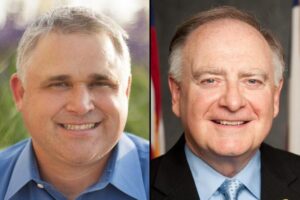A friend and I were chatting today about the upcoming runoff election in Texas House District 2 between Rep. Dan Flynn and challenger Bryan Slaton.
Flynn finished first in the Republican Party primary on March 3; but he didn’t get 50 percent plus one vote, which would have allowed him to win the party nomination without a runoff election. Slaton finished second, so he and Flynn will run against each other in May.
My friend wants to know: Why do we even need a runoff election? He said he would support ending this practice, which I mentioned to him is essentially a “Southern thing,” given that states in the South historically have required primary winners to win an outright majority, even in multi-candidate fields.
He poses a good question.
The House District 2 runoff will produce a hideously abysmal voter turnout. That’s the way it goes with these extended primary contests. The only folks who tend to vote in runoffs are the hyper-dedicated, the zealots. The rest of the electorate usually can’t find the time, let alone the interest, to vote in runoff elections.
We also have at least one important statewide race to decide in the runoff: two Democrats are running for the U.S. Senate seat, M.J. Hegar and Royce West.
Why, indeed, do we need to do this? These elections cost us all a good bit of money, but too damn few of us ever take part. A simple plurality during the primary ought to suffice.
I mean, c’mon … presidents of the United States are elected without ever gaining a majority of votes.

